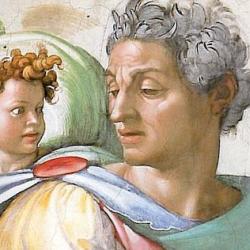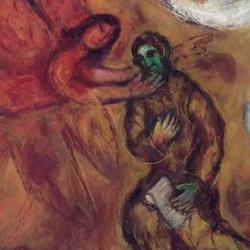INTRODUCTION
The House of Jacob has wandered into darkness. If they want to avoid destruction, they must turn to the light (v. 5), because a day of reckoning is coming (v. 12).
THE TEXT
“O house of Jacob, come and let us walk in the light of the LORD. For You have forsaken Your people, the house of Jacob, because they are filled with eastern ways; They are soothsayers like the Philistines, and they are pleased with the children of foreigners. Their land is also full of silver and gold, and there is no end to their treasures . . . .” (Isaiah 2:5-22).
IDOLATRY
Judah has been influenced by foreign nations, following soothsayers and diviners just like the Philistines (v. 6). According to Deuteronomy 17, kings were forbidden to multiply horses, chariots and wives, but Isaiah charges that the people of Judah have violated all three of these prohibitions: They make alliances with foreigners (v. 6), fill the land with silver and gold (v. 7), and multiply horses and chariots (v. 7). Money and power have become their idols: Just as the “land has been filled” with treasure and chariots (v. 7) so it is filled with idols (v. 8).
DAY OF SPLENDOR
In creating the world, Yahweh first spoke light into being and called the light day (Genesis 1:3-5). Throughout the Bible, the “day of Yahweh” is a recapitulation of that first day of creation. The coming of Yahweh means the coming of light. But light has different effects on different people. Light exposes things that are hidden. People who are trying to hide their sins love darkness rather than light, and so are terrified by the coming of the Lord’s Day. Like Adam, they hide themselves when Yahweh comes in light (Genesis 3:8). For others, the day of the Lord exposes sin but leads to repentance and restoration, a new creation. Every Lord’s Day is a Day of the Lord; each week, the Light comes to judge and renew.
HUMBLING THE PROUD
Judah has become proud. In her idolatry, her eyes have become lofty (v. 11-12), but Yahweh is coming in His splendor and majesty (vv. 10, 19, 21). He will be exalted (vv. 11, 17), and His exaltation means that all those who have made themselves high will be humiliated and cast down (vv. 9, 11, 17). Isaiah runs through all the high things in Judah: cedars and oaks, mountains and hills, towers and walls, ships and craft (vv. 13-16). Ships are “high” because they have tall masts, and also because they represent the height of ancient technology and of ancient mastery of creation, mastery of the chaotic seas. A fleet of ships was a particular occasion for pride. Eight high things stand against Yahweh, but He will cast them all down and will be exalted in their place (v. 17).
DOWN TO EARTH
When Yahweh is exalted, all the high things are cast to earth. Those who hate the light of Yahweh’s splendor hide in rocks and caves (vv. 10, 19). Earlier in the Bible, Israel’s enemies hid in caves from Israel (Joshua 10), but now Judah herself will go into embarrassed hiding (cf. Revelation 6:15-16). The proud will go down to the dust from which they were first made (v. 9; cf. Genesis 2:7). When Yahweh comes, the gods of silver and gold will also be cast down, thrown to the moles and bats (v. 20; cf. Genesis 35:4). Since the proud are so easily humbled, Judah should stop regarding men, who have to receive the breath of life through the nose (v. 22). Fear God.










